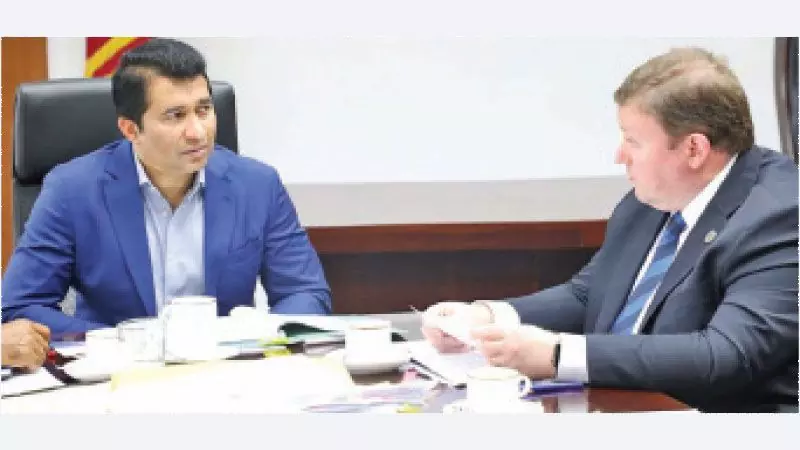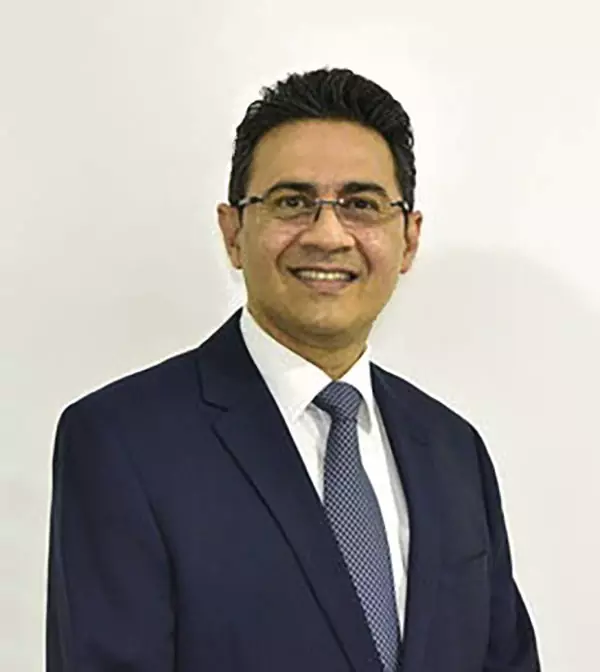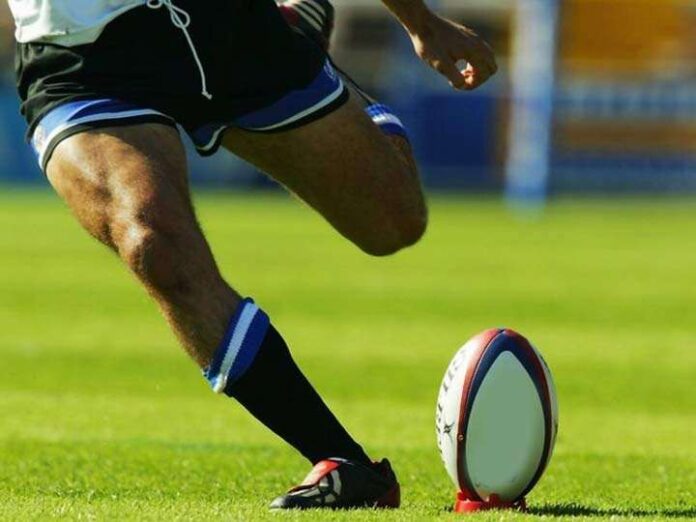July 14, Colombo (LNW): With the aim of holding the Sri Lanka Rugby office election, a writ has been issued preventing the discussion regarding the constitution of Sri Lanka Rugby in the general meeting held prior to it. Accordingly, in the General Assembly held on the 15th, although there is no issue with discussing the filling of the void caused by the dissolution of the Sri Lanka Rugby administration, it is not permissible to discuss changing the constitution there.
We pointed out long ago that this situation could arise. Many people, however, pointed to the desire of World Rugby instead. But if the common law of a country imposes any censorship on a particular field within that country, an international organization cannot override it. In this judgment, the facts pointed out to the court by seven provincial associations have been accepted that the provincial associations are being prejudiced in some way by disregarding the current Rugby constitution.
The Sports Minister has undertaken some progressive work. If Minister Roshan Ranasinghe had been there, perhaps none of the Olympic representations that people are celebrating with joy at this moment would have happened. But due to Harin Fernando’s commitment and guidance, as well as providing the necessary financial support, has managed to select a team of seven players to carry the flag of Sri Lanka at the Paris Olympics this year. Additionally, we appreciate the Minister of Sports for making significant interventions in rugby, including financial contributions to the referees’ association and insurance for school players.
But the Sports Minister, who acknowledges that the entire sports sector in Sri Lanka should be decentralized and formalized, and demonstrates support for this principle, does not appear to be addressing these concerns in rugby. It is unfortunate to observe that the Minister of Sports also supports the strategic intervention of several sports clubs in Sri Lanka to maintain them as their assets.
The constitutional changes proposed by the International Rugby Federation should be discussed within the framework of the existing constitution. It cannot be amended except by the will of the majority. At the moment when the country is unstable, our interpretation of handing over the president of the country to a person with one seat is wrong. Although the people did not directly express their will, the appointment occurred based on the majority will of the parliament elected by the people. The appointment shall be considered legal and enforceable based on the majority representation.
But what they are currently attempting to do is to disregard the majority opinion within rugby and assert that the amendments proposed by the Ministry of Sports and several sports clubs are in line with those brought by the World Federation, thereby exerting undue influence over rugby administration. It is a pity that the sports minister also believes that the major responsibility should be given to the major rugby clubs in his words.
Besides the first-class rugby teams, do those sports clubs field teams for the various grade matches played in Sri Lankan rugby? We also need to consider whether all the resources invested annually in the future of rugby through schools are being effectively utilized in the first grade. The teams competing in the second division serve as the foundations where players develop before advancing to the first division, and potentially even lower-level sports teams.
Also, these first-tier sports clubs are currently anointing the power of the main chairs of Sri Lankan rugby so as not to harm the power of those sports clubs by maintaining the first-tier tournament under the dominance of those sports clubs and not allowing a new sports club to compete. Emphasizing the issue that Sri Lions Sports Club, the champions of last year’s second-tier tournament, which even received international broadcast coverage, lacks a playing field, thus preventing their promotion to the first tier.
The actual situation is that Sri Lanka Rugby does not have an official sports ground. As a result, they are compelled to play at Nittawela, the Reed Avenue ground, or the Kandy Sports Club ground, or any first-class rugby club ground in Colombo for international or national programs.
Mahinda Rajapakse took advantage of the Sri Lanka Rugby administration led by Lasitha Gunaratne during a critical political moment, promising to provide a playing field for Sri Lanka rugby, but the promise was not fulfilled. Mahinda Rajapaksa’s son became the sports minister and we thought that he would do it for the rugby game that that son led. But he influenced the independence of the rugby administration and tried to control it the way he wanted, along with the president of Asia, he banned Sri Lanka Rugby and issued a gazette notice.
It has been pointed out that Sports Minister Harin Fernando is also leading a similar action at this moment. The Minister does not receive any advice considering the current legal status of Sri Lanka Rugby as a sport under the constitution of Sri Lanka and under the International Olympic Committee and its orders.
It seems that the sports ministry does not have a humane vision to make a marriage and be happy as one family, just like a legal department that does a divorce and smiles like victory.
An institution and a minister who make political and policy decisions in sports should have the ability to look deeply into why they are trying to move certain things within the legal framework, taking into account the notes related to the law for every action as well as the unique issues that affect them. To achieve this, in legally paving the way forward, the shape of the law should be determined by considering not only legal principles but also the historical context and conditions inherited over time.
Currently, sports clubs wield significant influence by maintaining teams, operating member-exclusive restaurants, and serving as gathering places for the decision-making elite. Besides the army and the police, it appears they are not maintaining any other groups beyond the first-tier.
It is their practice to strategically stick individuals who represent the decision-making class for profitable outcomes. Under the rugby system, a portion of the funds provided internationally to elevate provincial-level games is withheld by the international body as installments towards fines imposed on Sri Lanka. We have to inquire here that the official who acted as if it is harmful to the rugby game to collect that amount in this way, and who is the international official who agreed to deduct it from the money for the development of rugby in the country as said.
We can see David Carigie as a leader in lobbying for the International Federation to change the constitution. He is the official who agreed to deduct Sri Lanka’s fine from the funds allocated for development, and who did not issue warnings or penalties for the disgrace caused to Sri Lanka Rugby by the officials involved in that matter.
Is it not possible to imagine whether there was any connection between these local and international parties in the way these events happened? Can’t it be seen that the same local and foreign groups that were together in agreement with the decisions of that day are also together today for the purpose of consolidating the power of several sports clubs? It is important to read them and understand the issues that can and cannot be interfered with in setting up a country’s rugby system as required by the international community.
Specially as a country’s sports policy, the most attention at the moment is to provide facilities for sports in areas where sports are not widespread. Primarily to expand the space in which sport takes place outside the narrow confines of elite culture. If that national policy is a structural requirement of the country’s sports administration, the world association cannot interfere with it in any sport. It does not interfere with it. Also, are there any cases in the history of sports where the World Sports Association has asked to legislate in a way that restricts the sports of a country to a few sports clubs that are engaged in that sport? Generally, the world sports associations and confederations tell the sports administrations of a country that it is necessary to spread the sport further in the country.
For that, if any world association talks about giving more power to a few sports clubs that have only a first-class team and paving the way to run the sport in that country, it is not the nature of a world association. Are there any other countries that have been advised by the World Rugby to condense the sport of a country into several sports clubs? Most countries’ sports governing bodies develop sports in a manner that is fair to all social groups within that country.
Even if a country has been sanctioned by the world due to a civil war situation or other human rights situation, the International Olympic Committee will take the support of developed countries and make arrangements to provide the opportunity for the talented athletes of those countries to form a team at the refugee level without being overwhelmed.
Rugby, an Olympic sport, is also bound by these values. For example, refugee players like Mo Mustafa come to the international arena, because of the decisions made to spread the space of the game widely in the world. It is a problem to say that in such a situation, a country is being asked to make a special impact and subject its rugby administration to narrower limits than it currently is. While the Ministry of Sports or the administration believes that the area spread in every sport should be enlarged and the facilities should be developed and the community with hidden talents should be found for the sake of the sport, the legal department of the Ministry of Sports does not show the legal possibility to implement the same in the rugby game and the World Association says this: If it is not done, it will be banned and the minister will be misled.
Instead of strengthening the game and strengthening the family, the legal department earns from divorces. This is a bad situation.
At the moment, as in every sport, rugby also needs to shorten the trunk of the white elephants in the game and widen the space for others to enter the game. For that, it is necessary to create a pattern that promotes the last team of the first division to the second division, and the team that comes first in the second division to the first division. This should be done without making excuses like the first division cannot be played without a sports field. Such changes will benefit the game. Presently, efforts are underway to transform the first team into an asset for several sports clubs, ensuring they consistently remain at the top and preventing any disruptions throughout the entire game. This constitutional change is brought in the name of strengthening it and taking away the right to protest and express opinions of local associations who speak against it.
The legal matters required for the above changes are to inform the World Association of the need for amendments in the country’s sports policy to Sri Lanka Rugby and to indicate to the World Association that they will intervene in the amendments necessary to expand the spread of the game and not to make the entire sport of the country an asset of a few sports clubs. A group falls from top to bottom because relative weaknesses abound.
In order to reset the situation and move forward and the second tier talents come to the first tier, the sports clubs representing the first tier and second tier rugby tournament should be decided every year. It is love for the game that contributes to take the game to a place where the quality of the competitive game rises. Otherwise, the hope of the constitutional change is to preserve the right of their Bumunu caste and keep their stable cultivation forever, and try to move to a system that handles the entire game as they want.
The country’s ministers and ministry officials are misguided when they divert funds intended for provincial sports development, which should rightfully compensate those impacted by illegal activities related to the country’s rugby, towards other development activities without legal consideration. This misuse bends the law to benefit criminals. Those responsible should prioritize the future of their children more seriously. Otherwise, the next generation will hate and reject their fathers as those who contributed to the destruction of a strong sport in the country in such a way that those children cannot face it.


In the first photo are former Sports Minister Roshan Ranasinghe and David Carigie from the World Federation. In the second photo is Sports Ministry Advocate Chandimal Mendis. he legal status of this is to place it in a position where it can expand significantly beyond the current scope of rugby in Sri Lanka, leveraging international experience. He has been tasked with the responsibility to act on behalf of multiple sports clubs, ensuring not to cater exclusively to the demands of certain rugby clubs in the country.
*Adapted from original article, “ව්යවස්තා සංශෝධනය ගැන කටේ කෙළ නොසොල්වා, රගර් ගැන කතා කරන්නට හැකි ලෙස රිට් ආඥාවක්” by Nishman Ranasinghe published on 14/07/2024.

